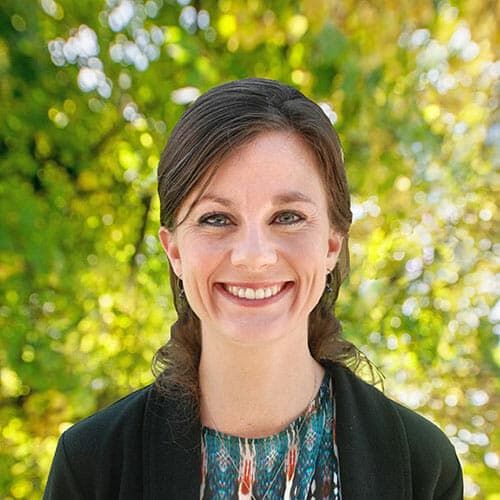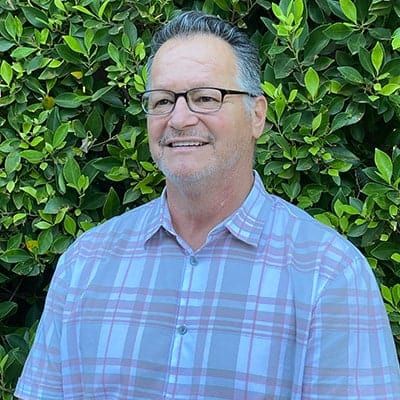Aftercare Substance Rehabilitation Programs for Addiction in Los Angeles, California
Our Aftercare & Alumni Programs at Harmony Place
We connect and assist our clients with the recovery process long after they complete treatment at Harmony Place.
Graduates of our residential and outpatient programs are invited to remain a part of the Harmony Place family after their treatment plan is completed by participating in our Alumni Program.
The Harmony Place Alumni Program offers weekly alumni meetings, an online support group, social events, and the opportunity to grow as a leader by becoming a Harmony Place Mentor. A licensed therapist directs and supervises the alumni program and meetings. Participation in the alumni program is offered at no cost.

Meet the Captains of Our Alumni Program

Jennifer Dale Bricklin, MS, LMFT
Clinical Director & COO,
BBS License: 76407
I am a Licensed Marriage and Family Therapist. After years of working in addiction treatment, I recognize the importance of community and connection for ongoing sobriety. My goal is to create this for graduates of Harmony Place.
My favorite group at Harmony Place is the weekly Alumni Group, and I invite graduates of the program to attend on Wednesday evenings at 6:00 p.m.
In addition to my work with alumni, I can be found meeting with current clients to make certain they have enough support while at Harmony Place and beyond.

Paul Williams
Resident Advisor
Tech Supervisor
I came to Harmony Place with my own personal and professional treatment experience. I understand the challenges that one faces with alcohol and substance abuse. I am an advocate of 12 Step programs, which contributed to my spiritual healing and substance abuse recovery.
I have learned to love and forgive. The past is the past and should stay that way. Living in the moment provides a manageable way of coping with life’s challenges.
I have dedicated myself to helping other addicts recover from a hopeless state of mind by sharing my own personal experience of living in recovery.
Call Us 24/7: (855) 652-9048

Harmony Place Alumni Group Gatherings & Events
Our Alumni Group convenes weekly at our residential facility in Woodland Hills, California, to provide ongoing support. Alumni are invited to join our current residents for a light snack followed by a group meeting or alumni activity.
Past Events Include:
-
Checkers Tournaments
-
Wiffle Ball Games
-
Soccer Tournaments
-
Karaoke
-
Carnivals
-
Basketball Tournaments
-
Ice Cream Socials
-
Halloween Pumpkin Carvings
-
Badminton Challenges
-
Gardening Events
-
Ultimate Frisbee Games
Mentor Group Sessions
The Harmony Place Mentor Group convenes weekly at our residential facility. Current residents, outpatient clients, and alumni are invited to join us for a light snack, followed by a speaker meeting.
The speaker meetings are lead by:
- An alumnus who has recently completed their substance abuse treatment and is using their new coping strategies in their independent life
- A sober member of the community who can share inspirational experience, strength, and hope with those new to recovery
We Believe in Your Recovery – No Matter What.
Alumni Online Support Groups
Harmony Place offers two online ways to connect with other alumni and our staff members from the comfort of your own home. This gives a private and convenient solution for those who cannot attend in-person meetings.

We offer a closed group page on Facebook strictly for Harmony Place alumni to share stories, encouragement, and affirmations. Only other alumni and our staff can see it, so you can be as open and honest as you’re comfortable with. Click below to request to join our group.

We also offer a closed online group that meets via teleconference (usually on Mondays at 6 p.m. PST). This group is only for Harmony Place alumni, giving all attendees a level of comfort to speak freely and honestly without the wider public being able to look in, similar to alcoholics anonymous.
Aftercare and Alumni Program FAQs
Have any additional questions about our drug and alcohol addiction aftercare program? Browse through our frequently asked questions below and see if we have your answer.
- Inpatient Rehab Los Angeles
- Intensive Outpatient Program Los Angeles
- Evening Intensive Outpatient Program
- Medication Assisted Treatment Los Angeles
- Outpatient Rehab Program Los Angeles
- Los Angeles Partial Hospitalization Program
- Medically Assisted Detox LA
- Sober Living Homes and Halfway Houses
- Clinical Care Los Angeles
- Family Therapy Rehab Program
- Couples Rehab Los Angeles
- Men’s Addiction Rehab California
- Women’s Rehab Center SoCal
- Addiction Treatment for Veterans
- Short-Term Addiction Rehab
- Long-Term Addiction Rehab
- Private Luxury Rehab Los Angeles
- Faith-Based Rehab Programs
- Non-Faith-Based Rehab
- Rehab for Professionals LA
- Rehab Aftercare Alumni Programs
Everything about recovery has to do with change. You need change when you have developed a life-threatening addiction to drugs or alcohol that you cannot control.
Mistakenly, many people assume that drinking and drug use are the only things that need to change in their lives. “The only thing you have to change,” as is popularly said in recovery, “is everything.”
If you honestly look back on the last few months of your substance abuse, you might have difficulty identifying a single area of your life where the substance was not involved. Perhaps you weren’t using them: You might have been thinking about them, wishing you were using them, or devising a way to obtain and use them later.
When the disease of addiction progresses, it permeates every area of life. For that reason, you should expect that everything has to change.
Taking Recovery One Day at a Time
Changing everything sounds like a tall order because it is. Thankfully, changing everything doesn’t have to happen in a day. People take recovery one day at a time for a scientific reason; you can’t change everything in a day.
From the very moment you choose to put down drugs and alcohol and dedicate yourself to a lifestyle of recovery, you’ve changed everything. Learning new behaviors, ways of thinking, and coping mechanisms is just a matter of filling in the details.
Here is a list of all the changes that are coming your way when you decide to get sober:
- You’ll save a lot of money.
- You’ll be able to think more clearly.
- You’ll identify your feelings.
- You’ll be able to feel your feelings without fearing them.
- You’ll build closer relationships with friends and family.
- You’ll have less stress and better tools for managing stress.
- You’ll know how to handle life.
- You’ll know relapse prevention skills.
- You’ll have ways of reaching out for help to get through a difficult situation rather than turning to drugs and alcohol.
- You won’t wake up hungover.
- You won’t wake up not knowing where you are after a blackout.
- You won’t experience withdrawal ever again.
Suppose you’ve graduated from Harmony Place and have moved out of the area. In that case, you can still interact with other alumni through one or both of the ongoing therapy support groups mentioned above. We can also help you connect with other Harmony Place alumni who now live near you – someone who may become a sober companion.
And suppose you’re ever back in our neck of the woods. In that case, you’re welcome to stop by our residential facility for either an Alumni Group activity, a Mentor Group meeting, or just to say hi to your treatment provider.
Addiction aftercare programs are different for every facility and treatment program. Generally, aftercare programs for substance abuse are individual and group therapy meant to help clients transition from higher levels of care to sober living. After all, drug and alcohol rehab is only the beginning of a lifelong path to recovery.
For example, some treatment centers might provide only inpatient residential programming and aftercare programming. Others may include a more intensive step-down process, from inpatient to partial hospitalization to intensive outpatient and aftercare.
Harmony Place provides the most effective and overarching aftercare program, which includes our partial hospitalization program and our intensive outpatient treatment program before post-treatment and alumni services.
Addiction Aftercare Program Accommodations
Aftercare residents move from our residential treatment home to our transitional living home, another luxury residence.
Most aftercare programs provide transportation to and from the day treatment facilities. Some aftercare programs that are only intensive outpatient-based might offer treatment programs in the evenings. Aftercare can also include once- or twice-weekly group processing sessions. Typically in aftercare, the facility reduces the number of individual therapy sessions, putting the responsibility upon the client.
Harmony Place stands out from other treatment facilities because our treatment facility maximizes individual therapy. Our heavy focus on individual therapy helps clients build the foundation they need for success.
Continuing parts of the program like exercise, yoga, or other components vary from one facility to the next. Typically, day programming and intensive outpatient do not include these treatment components as part of aftercare. Unlike other facilities, Harmony Place continues to offer a continuum of care based on total healing of mind, body, and spirit.
Why Aftercare Is Right for You
Treatment is not meant to last only 30 days or fewer. Effective treatment with long-lasting results, namely lifetime recovery, is best in three months or more intervals.
Thirty days is just enough time to stabilize and learn recovery tools. Aftercare recovery meetings provide an ample opportunity for healing.
In addition to providing the support necessary to facilitate your continued recovery from addiction and mental health issues, the Harmony Place Addiction Aftercare Program offers vocational counseling, drug and alcohol rehab, and guidance to assist you on your journey toward a meaningful and productive life.
Our vocational rehab counselor will work with you through career testing and counseling to identify your skills and goals. You will have assistance in creating a resume and filling out job applications, or we can help you look into educational opportunities.
Summertime is full of music festivals, get-togethers, and fun outdoor activities. Sometimes, recovery from drug abuse and alcohol addiction can be an obstacle to having fun rather than a bonus.
Here are a few pointers on how to have fun while sober during the summer or any time of the year:
Go to Festivals with Sober Friends
Music festivals are usually fraught with drugs and alcohol; there is no way around it. Recovery is not meant to be a shield from drugs and alcohol. Instead, recovery is your sword to brandish, warding off temptation.
One of the best ways to do this is in numbers. Together with other sober peers, you will be able to support one another, stay focused on recovery and have fun. Being in the present moment and living life for all it is worth is part of recovery.
Here are a few suggestions for bringing your recovery to music festivals:
- Find meetings: Many others like you want to continue going to festivals and having a good time while staying sober. Many have mutual support groups and communities at these festivals where straight people can gather for support, encouragement, and fellowship.
- Start meetings: If you can’t find a meeting, start one! Festivals receive a lot of criticism for drug and alcohol abuse and overdoses on club drugs. Try contacting various organizers to see about creating an on-site meeting. There and how you can help promote sobriety.
- Look for communities online: Some significant festivals and events have online communities that thrive all year. There are digital clusters of sober people giving information about where to find them and what support they are offering during the festival.
Host Sober Parties
Going to festivals isn’t the only way to show you’re sober and that you like to have fun. Host a straight party and change it up every time you host one. Have a themed party, serve virgin mixed drinks, make juices and smoothies and then turn on the music.
Game nights, movie nights, cooking nights, and more can all be done sober while having a fantastic time. House parties don’t have to be a thing during recovery.
Hit the Club
Live music, live DJs, and going dancing doesn’t need to be experienced intoxicated. For many people, discovering they can have fun dancing and meeting new people without being drunk or high is a revelation.
Going out to clubs can be triggering, so make sure to bring sober friends with you and drink water or soda together. You’ll be amazed to find you have more energy than other people and that you can dance longer and have little inhibition.
Recovering from drug or alcohol addiction or a mental health disorder is a lifelong treatment process. Though it comes in ebbs and flows, the work is never entirely done. Little do we realize upon getting sober that our addiction had found a way to affect every part of our lives.
Cleaning out and reorganizing every single drawer in a household takes time. It cannot be done in a day, or something important might be missed. Similarly, addiction cannot be overcome in a night. Not indulging in drinks or drugs is a daily task and never a permanently completed one. Changing everything is a tall order, but not an impossible one.
Not absolutely everything changes in its entirety. Instead, many parts of your life become repurposed.
For example, some of your thought processes and beliefs can be used to enhance your recovery rather than damage it. Here are a few examples:
Go Big or Go Home
The disease of addiction is constantly demanding more. We have to try harder, go bigger and get more drugs and alcohol. Risk-taking, thrill-seeking, and trying to meet every whim of addiction create a reckless lifestyle where life is lived on the edge.
You can take all that motivation and determination away from addiction and put it right into recovery. There’s no natural way to only sort of do recovery. You’re either sober, or you’re not. Give it everything you’ve got, and you’ll be amazed by the results.
Feeling Connected to Your Body
Hallucinogens, getting drunk, using drugs, abusing substances, and harming ourselves through self-mutilation can contribute to a skewed relationship with the body. Some people abuse substances to feel more connected to themselves in what they believe is an authentic way.
Others would use substance abuse to escape their bodies instead. Whatever your connection is, put that into learning how to take care of your body in addition to your mind.
Raising the Bar (Without Sitting at One)
When you become tolerant of and chemically dependent on drugs and alcohol, you rely upon many substances. Compared to your friends, you’re probably using more than anyone. You lead by example, even though you might not be setting the best one.
In recovery, you have a chance to set an example for others just by staying sober one day at a time. When others feel like they can’t make it and don’t know how you’ll be able to tell them and, more importantly, show them that it is possible.
Many in our field hail telemedicine as the next frontier in addiction treatment. Phone therapy, texting therapy, and online immersive therapeutic experiences are coming next for the treatment of addicts and alcoholics seeking recovery. Telemedicine can also help those looking to find a structure for living with mental illness.
Telemedicine refers to any kind of treatment delivered over the airwaves instead of in person.
Why Telemedicine
Two main reasons contribute to the demand for remote treatment services: The first has to do with the changes in health care. Though the Affordable Care Act, aka “Obamacare,” made sure everyone could and would get health insurance and that health insurance would cover behavioral health or mental health, many thousands of people are still without health insurance protected access to care.
As the administrations in the White House have shifted, the health care coverage subject is going, or those who do have affordable health care; might not be able to keep it for much longer.
Second, not everyone has the ability to attend an inpatient program. There is a damaging philosophy regarding willingness when it comes to treatment. Someone must be willing to go to any length to get help and sober.
Unfortunately, some people do not have enough options to support them during a difficult time. Children, family members, and life responsibilities prevent these individuals from taking hours or weeks off at a time to get treatment. For individuals in these situations, telemedicine can be a great option.
Insurance Coverage for Telemedicine
More than half of the U.S. states have enforced laws requiring private insurance companies to pay for telemedicine services. Almost every state offers telemedicine reimbursement, specifically services delivered over live video.
There are no major federal laws regarding insurance and telemedicine yet. Insurance companies want to ensure that telemedicine is effective and helps treat people.
Taking Treatment Online
One research experiment titled “Rat Park” found that even when rats were given the option of unending supplies of cocaine-laced water, they did not choose them when their environment was not isolated. Having other mice to play with and mate with, a big cage, plenty of activities, and sunshine encouraged rats not to continue using cocaine, even though it was available.
Problematically, telemedicine could encourage isolation and prevent people from engaging in the solidarity and peer support they can only get when they go to treatment with other people. This is one of the significant obstacles to telemedicine for addiction treatment at the moment – in addition to functional and user-friendly technology.
